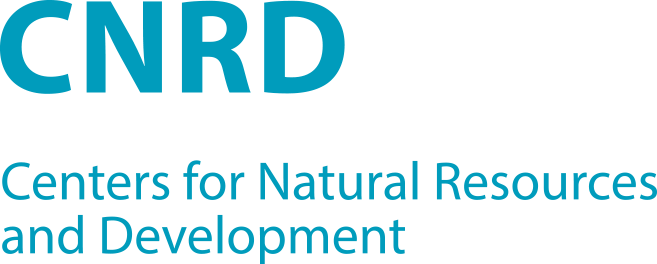E-Learning
Developing, managing and sharing e-learning resources
The CNRD focuses on promoting an innovative learning and study environment supported by blended learning, online learning platforms and multimedia teaching materials. The network has extensive experience in developing curricula, teaching modules, teaching materials and is keen to create e-learning materials. This includes lecture slides, exercises, read more, evaluation suggestions, etc. By building a digital data platform, the Shared Educational Resources Repository (SERR), the materials can be exchanged and used.
Agricultural Challenges in the Ethiopian Highlands
Gezira Irrigation Scheme – A Struggle for Revival
Vision or Reality – Benefit Sharing in the Eastern Nile Basin
Massive Open Online Course on “Disasters and Ecosystems: Resilience in a Changing Climate”
Drastic weather-related events in the past, such as flooding and droughts, have led to a great amount of discussion about the role that urban sprawl and the loss of green spaces and wetlands played in aggravating these disasters. It is critical that we learn more about the links between development and disasters through improved ecosystem management. This is what the massive open online course (MOOC) on “Disasters and Ecosystems: Resilience in a Changing Climate” is about.
When UN Environment and CNRD first launched the MOOC in 2015, no one could have anticipated its success. The first round of the course had over 12,000 participants from 183 countries. The participants took the initiative to create their own online community, which now has over 13,000 followers, where people share their stories of working with ecosystems to build resilience. For example, in India, Heba Anna Philip prepares farming communities for floods by introducing growbags that provide vegetables even if their fields are under water. And, in Pakistan, Dr. Naeem Shahzad at the National University of Sciences and Technology developed a new graduate program based on what is covered in the course.
Due to the extraordinary success of the MOOC, a revised version was launched only two years later. The leadership track was launched in 2017, followed by anexpert track in 2018, which includes 15 more units of in-depth material.
In the MOOC, Erik Solheim, UN Environment Executive Director, tells the story of Ravi Sangarappilai of the Disaster Management Center in northern Sri Lanka who started a campaign to improve coastal protection by planting hectares of mangroves. The MOOC also includes exclusive interviews with Inger Andersen, Director General of the International Union for Conservation of Nature, and Robert Glasser, Special Representative of the Secretary-General for Disaster Risk Reduction.
The MOOC explores the linkages between ecosystems, disaster risk reduction, and climate change adaptation. It aims to enhance knowledge and skills for tackling these complex issues and how they can be operationalized through ecosystem-based solutions for promoting disaster risk reduction, climate change resilience, and adaptation.
It is designed for disaster managers and practitioners, natural resources managers, climate change adaptation professionals, development planners, project implementers, policymakers, and students from around the globe.
The production of a MOOC is the result of many years of expertise at the ITT in the development of curricula and teaching materials, and is a result of successful cooperation between CNRD partners and associated organizations from science, society, and policy sectors.



